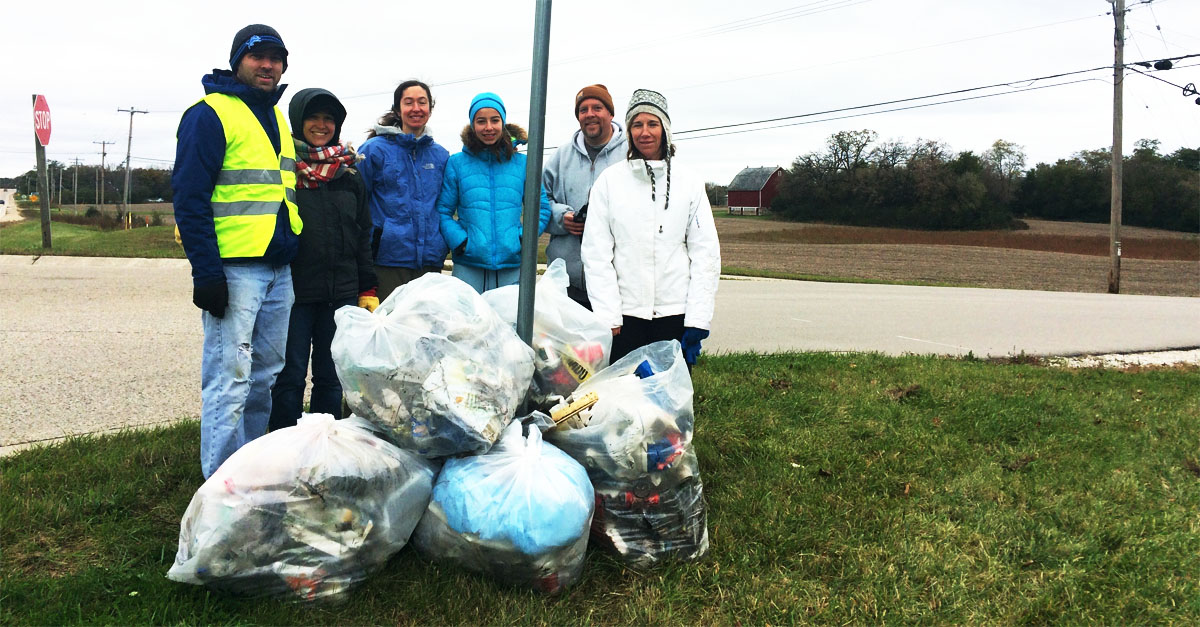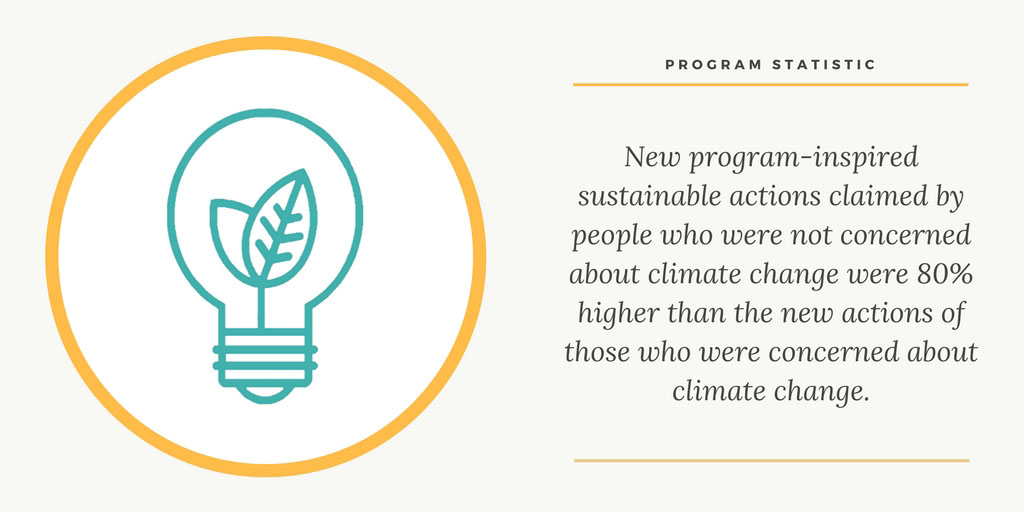
Many environmental advocates assume that in order to motivate action on climate mitigation goals, they have to educate the public on why climate change is so important. These advocates seek widespread agreement as a precondition to action. In reality, though, that agreement might not be necessary. In fact, by focusing on climate change instead of sustainability, campaigns may be unintentionally excluding the population with the most potential for reducing emissions.
The Sustainability Lens
Earlier this year, Cool Choices implemented a community-wide sustainability program in partnership with local business leaders in Waukesha County, Wisconsin. Waukesha County consistently ranks as one of the most conservative counties in Wisconsin. Our approach to recruiting businesses in Waukesha County to participate in the Cool Choices sustainability program was consistent with our approach elsewhere—we emphasized immediate local benefits, such as increased employee engagement and financial savings for both individuals and organizations that adopt more sustainable practices.
Every sustainability program we implement includes a baseline (pre) and post-program survey. In the Waukesha County surveys, we included a question about climate change in order to better understand our program participants. We asked these individuals to identify whether or not they, “worried that our use of fossil fuels contributes to harmful changes in the climate.” 16% of players disagreed, or strongly disagreed, and 23% were neutral. In comparison, of those same people only 3% disagreed that sustainability was important to them, and 13% were neutral. The vast majority of players agreed that sustainability was important to them, regardless of their concern over human-caused climate change. That means almost a quarter of respondents, 23%, agreed that sustainability was important to them, but that they were neutral or not worried about human-caused climate change.
Bottom line? People value sustainability for a variety of reasons: because they are concerned about climate change, because they like saving money, or because they simply don’t like wasting resources. All of these are valid reasons, and when leveraged can lead to an increase of environmentally sustainable practices.
Cool Choices’ programs inspires participants to change their daily habits in ways that save resources, including energy. While Cool Choices aims to reduce greenhouse gas emissions, we acknowledge that participants might have other motivations. Many of our participants play to save money, or because they like the lifestyle benefits of less screen time and more time outdoors. Our data suggests that the participants who are not motivated by climate change are more likely to be engaging in these behaviors for the first time, making them a prime audience for deep savings.
Broader Audience, More Savings Potential
When Cool Choices’ program participants claim points for an action they’ve taken, we ask them if this was something they were already doing before the program or if it’s a new action. This means we’re able to look at cohorts of participants and see who was already pretty sustainable and who was new to sustainable practices.
When we look at the population of people who agreed that they are worried about human-caused climate change, 27% of their actions were reported as new, or prompted by the program. This compares to the 34% of new actions that participants who reported that they were not worried about human-caused climate change took. This means that the new actions claimed by people who were not concerned about climate change were 80% higher than those who were concerned.

How to Appeal to Wider Audiences
By targeting people who are already concerned about climate change, you may be limiting the audience to people who are already engaging in sustainable practices—you may be “preaching to the choir.” When more inclusive messaging about sustainability is used, it engages a population with a greater potential for savings. Expanding the audience enables an organization to maximize results.
For more information on how your organization can tap into this powerful audience, check out one of our up coming or on-demand sustainability webinars or contact us to talk about how a Cool Choices program can help you engage a diverse audience around sustainability. For more program results, please download our recent white paper.
Comments are closed.




